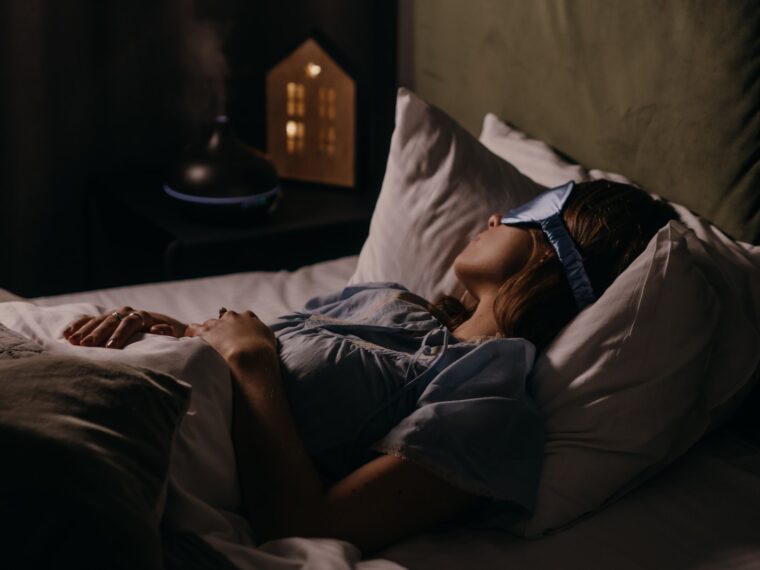Studies suggest that your sleep position can provide insight into who you are. But the findings should be taken with caution as certain positions can cause back pain, snoring or other health complications.
Fetal sleepers have been described as being shy and protective of their emotions. Pillow huggers tend to be friendly yet suspicious of newcomers.
Sleeping on your back
Back sleepers typically experience great night’s rest. By maintaining neutral spinal and cervical alignments while in this position, spine and neck pain is significantly alleviated and freshness in mind arises after each awakening. Back sleepers also tend to wake up feeling rejuvenated.
Sleeping on your back may lead to muscle tension in your shoulders and upper back if you have poor posture, so it is crucial that your mattress and pillow provide ample back support.
Back sleepers may experience snoring and breathing issues like acid reflux and obstructive sleep apnea. If switching to side or stomach sleeping is impossible for you, try placing pillows under arms and legs to ease discomfort; memory foam pillows are an ideal way to contour to your head and neck, alleviating back and neck pain.
Sleeping like a starfish
Sleeping like a starfish (sometimes known by other names) suggests you are likely warm and friendly, with trusting and gullible tendencies that make you an excellent friend but may lead to issues in relationships due to being unable to accept criticism easily.
The fetal sleep position – on your stomach with legs curled up – is often reserved for introverted individuals who are shy when meeting new people, according to Idzikowski. Fetal sleepers are said to possess tough exteriors while concealing a more sensitive side, likened to that of a bear inside of an animal body – and are known for being great listeners and helpers among their friends.
Sleeping like a baby
Babies sleep deeply, undisturbed by any external sounds or activity around them. It’s often common to find them sleeping soundly on their parents’ chests or strollers.
According to research by Sealy Mattress, people who prefer “yearner” sleeping postures such as lying on one side with arms outstretched may be more relaxed and social. However, as this study involved only a limited sample size, this data must be treated with caution.
To ensure a restful night’s rest, create a wind-down ritual that helps relax you before bed. Listening to soothing music or reading a book might do just the trick, while relaxing baths or meditation could also work wonders in helping manage anxiety levels and reduce stress. Stressful emotions can have an adverse impact on our sleep quality – it is therefore vitally important that we find effective strategies for dealing with them.
Sleeping on your stomach
Many aspects of our personalities can be conveyed to others – many within our control – but one often overlooked factor is how we sleep. One underrated factor that communicates our identities to the world is sleep positioning.
Sleeping on your stomach (commonly referred to as being “prone”) can put pressure on your spine, leading to neck, back and hip pain as well as increased acid reflux risk and exacerbating symptoms of sleep apnea.
Sleeping in the fetal position might make you seem shy at first, but once you get to know people you can open up and become quite outgoing. People who sleep like logs tend to be friendly but may be slightly gullible according to Idzikowski; on the other hand, “yearners” tend to be more reserved and even quite cynical.
Sleeping like a log
While most people take for granted that sleep positions will keep them comfortable while resting, researchers have discovered that your choice can have significant implications on personality traits as well as physical and mental wellbeing.
Log sleepers typically possess strong social skills and enjoy spending time with their peers; however, you may tend to be cautious of new people and take time before trusting them fully.
Another sleeping position similar to this one is soldier’s pose, where one lays back with arms raised above your head and sleeps on his or her back with arms extended above head. These sleepers usually display self-control and discipline but may also be demanding of themselves and others; although shy in nature, underneath this reserve lies their warm heartiness.
Sleeping like a soldier
Military service members face various factors that prevent them from restful sleep, including sleeping on nontraditional surfaces and extended deployments, 24 hour watch duty duties and 24 hour shift work duties. All these can have an adverse impact on how effectively someone rests.
Sleeping like a soldier involves sleeping on their side with arms extended out in front of them, similar to how soldiers do. This position can also help pregnant women release more oxytocin, which helps with relieving stress and bonding with their babies.
During World War II, psychiatrists employed drug-induced sleep to treat traumatized soldiers, giving them the chance to explore how war affected perception and identity. Their work would eventually influence radical veterans during Vietnam as they adopted and modified psychiatric principles to describe their own experiences.
Sleeping like a foetus
The fetal position, in which your legs are bent toward your chest, is an effective and healthy way to sleep. It helps prevent bone, muscle and nerve injuries as well as providing your spine with time to rest in its natural alignment – it is the most popular sleeping position among Brits (41% prefer this position).
Sleeping in this position indicates an introverted and sensitive personality. Though you may appear shy at times, deep down you have an abundance of warmth.
Researchers like Dunkell have suggested that certain sleep positions correlate with personality traits; however, such claims should be treated with caution. The best sleeping position depends on finding one that makes you comfortable; Nectar’s shredded memory foam pillow with tencel cover may help find you the ideal position.




